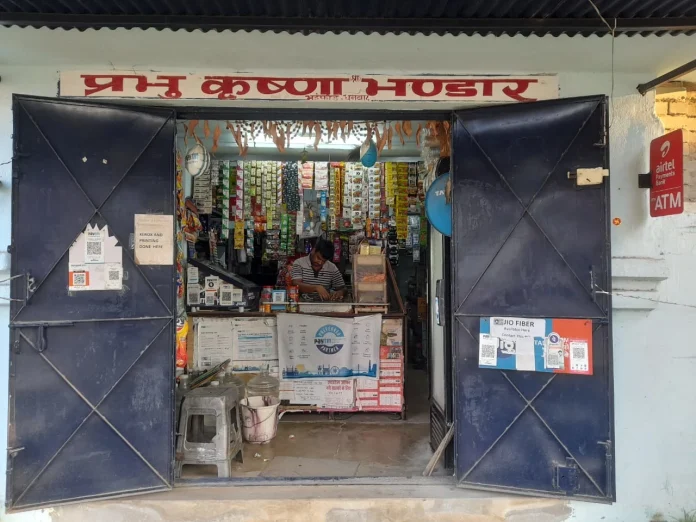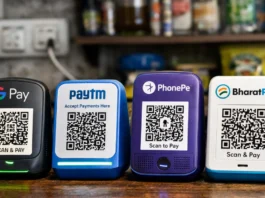
Shailendra Ghaste (SG) and Hemant Vora (HV) are co-founders of Maitreya Capital & Business Services Pvt. Ltd. (Maitreya). Both had worked in the financial services industry for around 30 years. IDFC and ICICI Bank were their last employers before they started their own NBFC, along with two other batchmates, Anup Kapadia and Ganesh Kaulaskar, from Jamnalal Bajaj Institute of Management Studies (JBIMS). In the conversation with them, we have covered Maitreya’s recent strategic investment in Paythrough Softwares & Solutions Pvt. Ltd. (Paythrough) and its plans.
Q. When was Maitreya co-founded, and what has been its business model to date?
SG: Maitreya is an NBFC created in 2015 by four financial experts, each with almost 30 years of experience at companies/ banks like ICICI Bank, HDFC Bank, Citibank, IDFC, etc. It is one of the pioneering MSME-focused NBFCs. Since its inception, it has focused on funding tiny enterprises and self-employed persons. The majority of its present portfolio is managed via its branch network in the larger Mumbai and Pune regions.
Q. What have been some of the key challenges faced by Maitreya Capital?
SG: As we all know, the demonetization and introduction of GST have impacted the MSME sector, specifically in the Micro segment. In the last two years, during the COVID pandemic, the Micro enterprises/ self employed segment was the worst affected, and for many of them, it was a matter of survival. Notwithstanding these challenges, Maitreya has sought to develop enhanced capabilities to continue offering relevant solutions to MSMEs in a post-covid environment where digital solutions and new underwriting methods have become the standard. One such step was taking a 50% stake in Paythrough.
Q. Tell us more about Paythrough and its business model?
HV: Paythrough is a technology and financial services provider with 10,000+ Agent locations delivering Cash deposits, Withdrawals, and Bill Collection in partnership with RBL Bank and Equitas Bank. Paythrough selects forward-thinking villagers and equips them with the “Paythrough Digital Financial Kit” to offer essential banking services in remote regions. The Paythrough agent network is widely dispersed throughout three states: Bihar, Jharkhand, and West Bengal.
Paythrough has developed the ‘Nagad Neo-Banking Platform’ to enable smaller communities with a comprehensive MSME solution.
Q. Can you explain in detail the Nagad program and its benefits?
HV: Nagad is a membership program for customers and retailers in Tier-2 to Tier-4 cities. It offers Neo-Banking services to customers and merchants, which includes banking, payments, credit line and cash-back to its members.
A merchant with a Nagad account in Chapra, Bihar, will now get the following benefits:
1. 0% MDR on all Nagad Customer payments through UPI, etc.
2. Instant Lending, Free Devices, and QR Codes enable them to service more customers.
3. Cash-back on bulk purchases, including inventory purchases.
4. Loans for working capital up to twenty lakh rupees.
Let me share the feedback of Shiv Narayan Pandey, a merchant based in Barwaada Village, District Dhanbad (Jharkhand). Before the introduction of the Nagad Merchant Program, his store’s primary source of income was the selling of basic foodstuffs, which was insufficient to feed his family. Consequently, he sought methods to increase his sales.
He was advised about the Nagad Program and the cash-back option at the Merchant location. By connecting his business to UPI and QR codes, the Nagad Merchant programme aided his company digitally.
The cash-back programme and digital purchases now help him attract more customers. His income has increased due to customers’ ability to pay their bills while purchasing groceries. The convenience of Nagad has transformed his little Kirana business, and his clients are pleased. Additionally, he has filed for a credit line, which he will utilize to purchase additional inventory for his business.
Q. This is very interesting; what are the member customer benefits?
SG: The Nagad program has a lot of benefits for the member customers as well. Some of the key benefits are as follows:
11. Approximately 10% cash back on all transactions. This includes food, confections, office supplies, medication, apparel, motels, restaurants, diagnostic centres, nursing homes, and hospitals.
2. Discounts on online purchases from merchants like Amazon, Flipkart, Myntra, OTT platforms, Travel, Ticket Bookings, etc.
3. By default, they have access to a debit-cum-credit card with an immediate credit limit of up to Rs. 5,000, which must be returned in 30 days at no cost. In addition, purchasers will have access to a Buy Now, Pay Later (BNPL) option for expensive products.
4. Online payment options such as QR codes and UPI transfers connected to a bank account. Customers can pay their bills, recharge their mobile phones/DTH, return their debts, pay their school/university tuition, and pay their FasTag tolls using this method.
Q. What are the benefits of this partnership to Maitreya and Paythrough?
SG: It’s a good question. It’s a Win-Win partnership for both partners, and hence, we are very excited about it.
For Maitreya: The partnership makes possible the funding of Paythrough agents in rural regions. As the agents use Paythrough’s unique technology platform to provide banking/payment services, Maitreya may make a credit judgement based on daily transaction information. The Nagad programme also provides Maitreya with new funding alternatives.
The strategic partnership between Paythrough and Maitreya has also boosted the senior management team of Maitreya in the areas of technology, rural marketing, and agri-allied finance.
For Paythrough: The agreement with Maitreya enables Paythrough to expand its agent network and, therefore, its payments business. Moreover, because of the large network of Maitreya co-founders in the banking industry, Paythrough will have many additional chances to provide its technological solutions, hence increasing its high margin services income (non-commission based).
Q. What are the plans of Maitreya?
HV: Maitreya proposes aggressively exploring the viability of sourcing “Priority Sector Loans” for several banks via a Business Correspondent (BC) model or co-lending arrangement, in addition to the abovementioned initiatives. The attempt to create a technical platform for FPOs (Farmer Producer Organizations) is another step in this direction.
With these modifications, Maitreya will have a healthy mix of fund-based and fee-based operations while preserving its core focus on financial inclusion.




